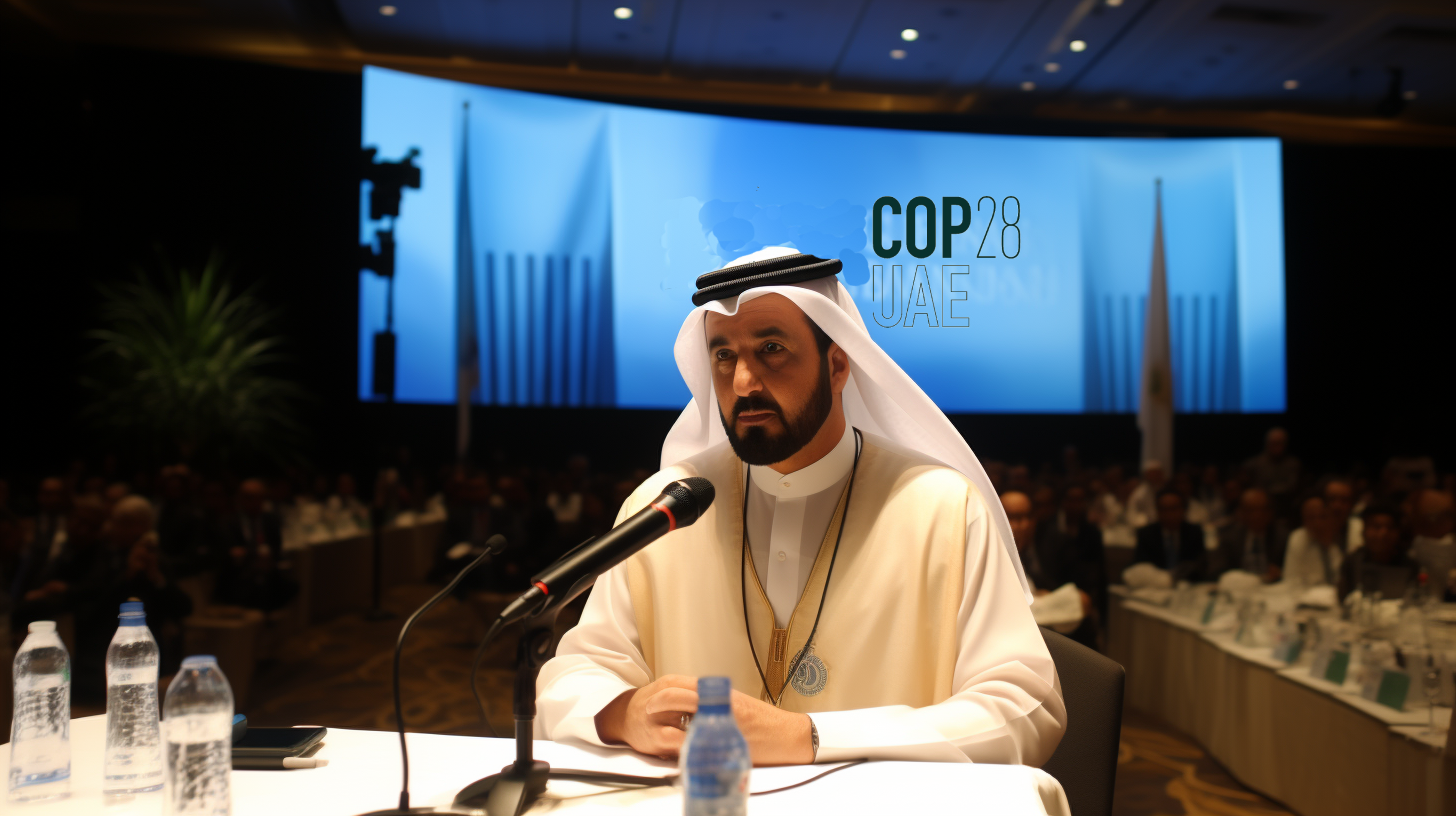As the next pivotal United Nations climate change conference quickly approaches, the COP28 summit to be held in Dubai has already attracted controversy before it even begins. Critics argue the UAE’s plans to use its host status to lobby for oil and gas deals creates an irreconcilable conflict of interest. This brewing scandal underscores risks for the energy investment community in navigating the global green transition.
Leaked documents revealed the summit’s president, Sultan Al-Jaber, intends to meet with officials from over a dozen countries to promote fossil fuel projects. As CEO of Abu Dhabi National Oil Company (ADNOC), the world’s 12th largest oil producer, Al-Jaber seemingly represents business as usual in the hydrocarbon sector – precisely as climate scientists urge rapid movement away from planet-warming emissions. This dual role as OPEC’s former president alongside COP28 president epitomizes the conference’s core tension.
While the UAE defends Al-Jaber’s energy background as an asset for summit leadership, others see an fox guarding the henhouse. Renewable energy interests hope COP meetings accelerate emissions cuts to open investment opportunities and meet targeted market shares. In contrast, unchecked fossil fuel dominance could strand assets and leave oil-rich economies behind. For financial institutions, balancing these competing interests grows increasingly complex.
As the global community seeks alignment on climate policy, COP28 takes on heightened importance after last year’s loss of momentum in Egypt. But with Al-Jaber pushing liquefied natural gas deals behind the scenes, the summit’s bold ambitions appear under threat – before even officially starting next week. This risks paralyzing investors betting on meaningful multilateral progress from the 12-day affair.
Rather than showcasing global unity, the conference could further fragment cooperative efforts. Those banking on strengthened commitments and standardized transparency may be severely disappointed. An already divided energy landscape would only become more fractured and filled with uncertainties.
While surging energy prices have boosted oil and gas profits recently, leaving firms cash rich for transitions, alerts sound over stranded asset dangers in the longer run. Without reliable political tailwinds, capital allocation planning swims in obscurity. Investors may continue clinging to the devil they know, slowing sustainability spending despite rhetorical Net Zero pledges.
ESG fund managers face particularly hard choices weighing reputational concerns with fiduciary obligations, as greenwashing allegations persist. Index providers must carefully contemplate emissions-heavy exposure amid heightening transition materiality. Even hydrocarbon majors pursuing renewables see climate credibility doubly damaged by COP28 coziness with embedded fossil fuel agendas.
In effect, the UAE’s COP28 aspirations throw harsh light on the messy entanglements linking energy incumbents to global cooperation imperatives. This summit was envisioned for closing gaps to carbon neutrality – not leveraging elite access for oil field services contracts or petrochemical exports. Dubai’s shone vision as progressive climate broker now sees tarnish.
While Al-Jaber resides at the controversy’s core, larger questions confront energy interests worldwide. How can multinational forums effectively drive sustainability without undermining diverse domestic interests or economic lifelines? Does climate progress rely on energy industrialists gradually conceding ground? Regardless of COP28’s impact, these dilemmas will persist in boardrooms everywhere industries collide with ecological boundaries.
For anxious energy investors, perhaps the greatest risk is policy paralysis. Without milestone markers implemented, capital deployment floats ambiguously while net-zero targets linger out of reach. Until political will consolidates around winding down emissions directly, bankers and shareholders face accumulating uncertainty handicapping strategic decision-making.
Of course, COP meetings have always brought thorny issues to the surface divisions easy to ignore otherwise. But the solution remains clear even if the path does not: economics needs ecology for human prosperity’s endurance. For financial players, that means sustained stakeholder value depends on sustainable business practices without exception. What hangs in the balance moving forward is how smoothly the global energy complex can stick that critical landing.
